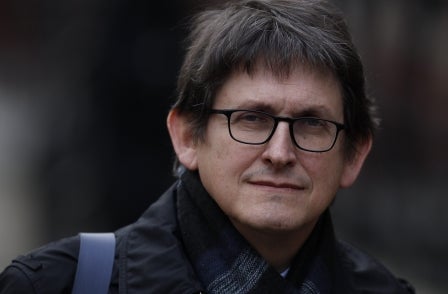
Downing Street accused Guardian editor Alan Rusbridger of threatening investigations into child-sex rings and drugs gangs in a last-ditch attempt to stop the paper publishing details from whistleblower Edward Snowden.
Speaking to The New Yorker, Rusbridger said Prime Minister David Cameron’s Cabinet Secretary Jeremy Heywood pleaded with him to spike the story.
Snowden’s leaked documents showed how GCHQ routinely eavesdropped on phone calls, emails, social media posts and internet histories while sharing the details with the US National Security Agency.
During a meeting in Rusbridger’s office on 21 June 2013, just hours before the story was published, Haywood relayed a message from the heart of government.
The New Yorker reports Heywood told Rusbridger: "The Prime Minister, the Deputy Prime Minister, the Foreign Secretary, the Attorney General, and others in government are extremely concerned about what you’re doing.”
Rusbridger said Heywood wanted all the leaked documents returned immediately.
Heywood reportedly warned him: “By publishing this, you’re jeopardising not only national security but our ability to catch paedophiles, drug dealers, child sex rings. You’re an editor, but you have a responsibility as a citizen as well.”
Rusbridger countered that he had a responsibility to publish information that citizens in a democracy were entitled to know.
Rusbridger said he assured Heywood that no details of undercover agents were identified. He also told Downing Street that any legal bid to prevent publication would fail because he had sent a dossier of selected Snowden documents to former Wall Street Journal editor Paul Steiger in the US to be published on Propublica if The Guardian was injucted.
Rusbridger revealed that while working on the story he ordered security at The Guardian’s office.
The Snowden files were kept in a locked room known as “the bunker”. A security guard was posted around the clock and no smartphones or any internet devices were allowed into the room.

Later in the profile, Rusbridger suggested that The Guardian may cease producing a print edition within five to ten years, or that it may begin printing only on certain days.
And he reaffirmed his commitment to the free model online: “With a rigid paywall, you end up with a small, elite audience, with restricted access for everyone else. We want a large audience and international influence, and not just with elites. That appears to be an attractive mission for advertisers.”
Rusbridger was also quizzed about The Guardian decision to invest £80m in Berliner-size print presses in 2005. The paper had to invest in colour printing technology, but since then others have questioned choosing an almost unique paper size (for the UK) which means The Guardian has not been able to sell its spare print capacity.
Former Guardian deputy editor Ian Katz told the New Yorker: "The mood of most people was that we should go tabloid. We thought we’d do a better job than anyone else. There was this extraordinary moment when Alan said, ‘This conversation is over. We’re not going to go tabloid.’"
Daily Telegraph editor Tony Gallagher is quoted in the piece claiming that the Guardian and Observer printing press is now silent for 22 hours a day: "It’s silent because no one else prints in the Berliner format. There’s no way that’s a good investment."
Rusbridger told the New Yorker: "The option was to build presses or rent them. We had to go full color. I don’t think there was any difference in costs.”
Email pged@pressgazette.co.uk to point out mistakes, provide story tips or send in a letter for publication on our "Letters Page" blog
